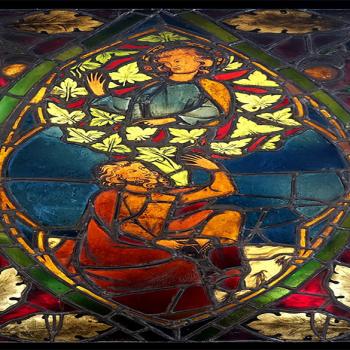8. In certain cases, the sum of the evidence may be greater than the total of its individual parts. "Pieces of evidence, each by itself insufficient, may together constitute a significant whole, and justify by their combined effect a conclusion." The cumulative effect of evidence is in some ways perplexing, but again reflects the role of the observer's preference in how evidence works. Individual pieces of evidence, each of which standing alone is relatively insignificant and uninteresting, may take on vast importance in a person's mind as they combine to form a consistent pattern or coherent picture. It is in some senses ironic that a few strong single facts can be overwhelmed and defeated by a horde of true but less significant facts, a strategy I used in winning several tax cases. But should one give greater credence to a wide-ranging accumulation of assorted details or to a few single strong factors? Only personal judgment will answer that question.
9. Another interesting effect occurs when a good case is actually weakened by piling on a few weak additional points. A bad argument may be worse in some minds than no argument at all if the weak arguments tend to undermine confidence in the strong points. But who can tell what will work or not work for one person or another? The degree of confidence a person is willing to place in any evidence is another manifestation of faith or personal response.
10. Similarly, advocacy and rhetoric are virtually part of the evidence. The techniques of presenting evidence are often as important as the evidence itself, and the subjective decision to feature certain points in favor of others can be the turning point of a case. Important facts forcefully presented take on added significance; crucial evidence overlooked and underused will not always even be noticed by the judge or jury.
Again, it is a sobering reality that the apparent victory in debates often goes to the witty, the clever, the articulate, and the overconfident. Hopefully, good arguments will always be presented in a clear manner so as not to obscure their true value; but because this does not always happen, prudent observers need to be careful to separate kernels of truth from the husks they are packaged in.
11. Not all evidence ultimately counts. In a court of law, the judge and jury will eventually decide to ignore some of the evidence, especially hearsay, mere opinions, or statistical probabilities. Similarly, in evaluating Book of Mormon evidence, one needs to be meticulous in separating fact from opinion. Likewise, fantastic statistics can be generated by either friends or foes of the book. This does not mean that statistical presentations should be ruled out of Book of Mormon discussions; some wordprinting studies, for example, have achieved noteworthy results. But such evidence must not be exaggerated and must be approached with sophistication.
12. Constraints on time and the availability of witnesses or documentary evidence may be completely fortuitous yet also very important. If a witness is unavailable to testify in court, the case may be lost. Documentary evidence known or presumed once to have existed is scarcely helpful. To reach a legal decision, time limitations are imposed on all parties; and in most cases, evidence discovered after a decision has become final is simply ignored.
In much the same way, important evidence relevant to religious matters will often be perpetually lacking. Thus, a person must subjectively choose at what point enough has been heard. Further historical or archaeological discoveries may eventually surface, but in the meantime, one must choose. In this regard, Elder Richard L. Evanscounseled, "And when we find ourselves in conflict and confusion, we can well learn to wait awhile for all the evidence and all the answers that now evade us." And President Hugh B. Brown recommended: "With respect to some things that now seem difficult to understand, we can afford to wait until we have all the facts, until all the evidence is in. . . . If there seems to be conflict, it is because men, fallible men, are unable properly to interpret God's revelations or man's discoveries."
***
Redeeming the Mind
In the end, what we need is not a metaphor, but a metamorphosis. Metaphors strongly depict the paradigm, but only a shift of heart will make the difference if we are going to learn wisdom even by study and also by faith. How are we to foster both spirit and intellect? I have five suggestions.
First, be competent but resist pride. Joseph F. Smith firmly declared, "Of those who speak in his name, the Lord requires humility, not ignorance." All are susceptible to the pervasive curse of pride, but scholars are above average in the pride category. We know by sad experience that when people get a little power, their natural disposition is to exercise unrighteous dominion, and clearly, knowledge is a form of power. Competence facilitates intellect, just as humility facilitates the Spirit.




